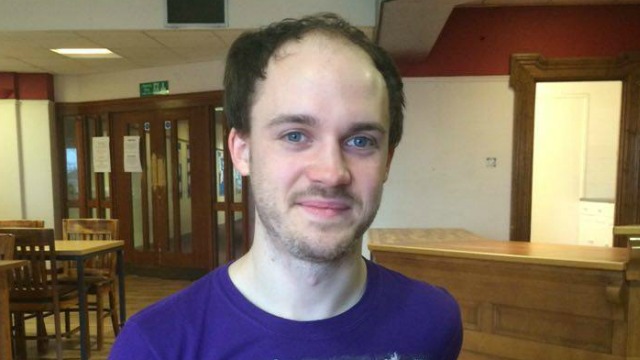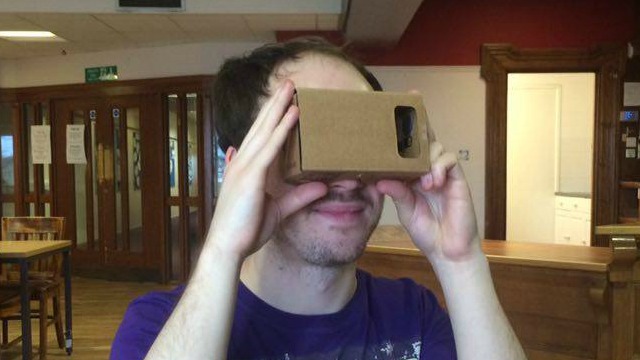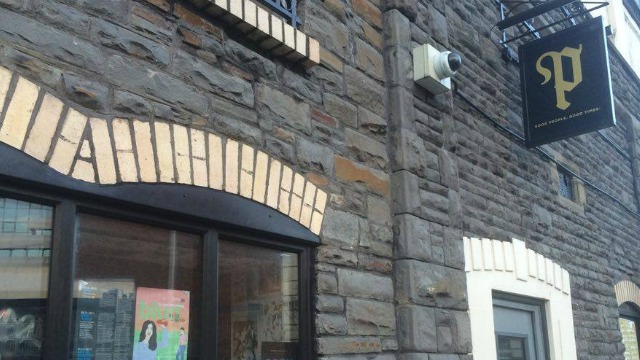From developing virtual reality apps to using Youtube to explaining what a black hole is, Cardiff astrophysicist Mat Allen talks about his science communication.

Zero gravity can cause many problems when in space: astronauts sleep strapped to their bed, they struggle to travel around the station and food has to be carefully packaged. One issue that may not immediately spring to mind are the problems that astronauts face when going to the toilet. The lack of gravity can cause giant globules of urine to float around the space station if an astronaut was to urinate how we would down on Earth.
Astrophysics PhD student Mat Allen explains how NASA deals with this problem (which is with the correct training and a vacuum pump) on his YouTube account. Regularly posting videos as UKAstroNut, he has answered questions including: why can we see the moon during the day? Can you survive in space without a spacesuit?
UKAstroNut YouTube Channel
He caught the science communication bug when he started his PhD, working on Universe in a Box: “I wanted to do more but I didn’t want to rely on other people so I looked at different ways that I could do outreach by myself.” Mat’s YouTube channel was subsequently created in the summer of 2014: “I watch and enjoy lots of different YouTube videos. I just thought it would be something really nice that I could do off my own back. There’s no pressure, I can curate whatever I want and so I just got into that and created a channel.”
Mat gets his inspiration from popular culture and random science concepts that he finds interesting. “It’s something I really enjoy doing, it’s a nice distraction from work and I can talk about novel and fascinating subjects. I think people are always interested in the human and unusual questions associated with science, which I love to talk about.”
Virtual Reality Space Exploration
Many of his YouTube videos unsurprisingly focus on astronomy, with the night sky having always been an inspiration to Mat: “I had a telescope when I was a kid. It sounds corny but I remember sat outside looking up at the sky and being amazed at the sheer scale and the idea of stars being these massive bodies that were the size of the sun but were billions of miles away so looked like specks in the night sky.”
However, Mat’s outreach is not limited to talking about these distant celestial bodies. He has helped to make them more accessible for man by developing free virtual reality apps that explore the solar system and universe in different light wavelengths, saying: “I wanted a job after my PhD in outreach so I thought to myself, I need to apply for a grant for a project and get one so it looks good on my CV. I’d heard about Google Cardboard, which is a cardboard box with a couple of lenses that can be bought for around £5 online. You pop your phone in it and you have a virtual reality set.”

The rest is history, with the apps showcased the apps at Techniquest, the National Eisteddfodd and Science Café Cardiff, a monthly event in Cardiff that Mat has previously helped organise. Mat believes virtual reality may have applications beyond exploring space: “I think it has a good chance of taking off. Google cardboard is so cheap so is a really good way of getting people initially interested. We have to spend money to further evolve it, but I really think there’s a future in it.”

For Mat, the applications of virtual reality are exciting: “There are loads of things you can do. For example, virtual tours of museums. School kids in Africa could have access to places like the Louvre or British Museum. They can put a cheap headset on and explore these locations, placed where people may never be able to visit.”
The skills Mat developed through doing his outreach have been invaluable and have even led to a job offer: “Before starting my PhD I worked on Project Gaia at the European Space Agency for a year. I’ve now been offered a job working on outreach with Gaia, helping to develop apps. It’s like I’ve gone full circle which is lovely.”
If you would like to get involved with Cardiff science communication events, see below for Mat and InterCardiff’s recommendations:
